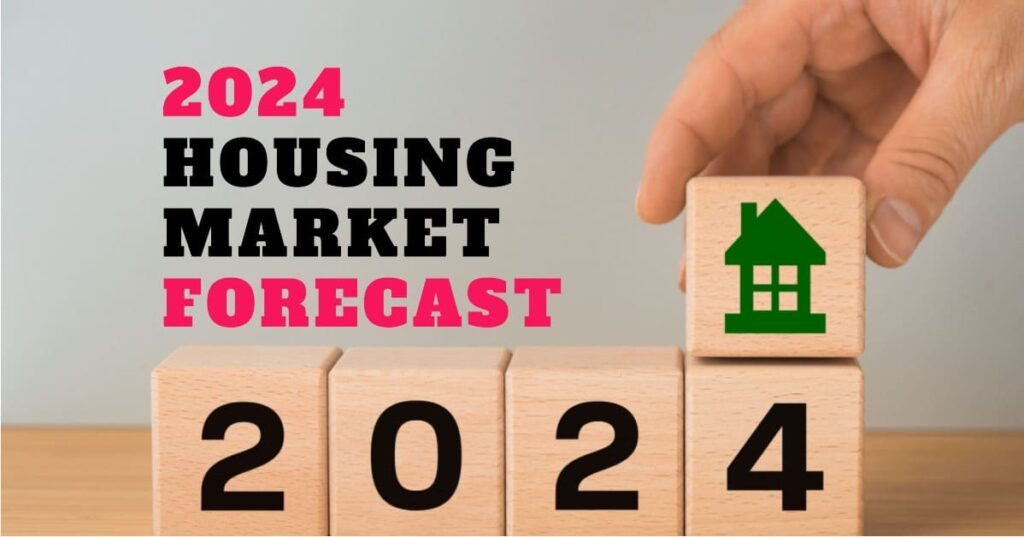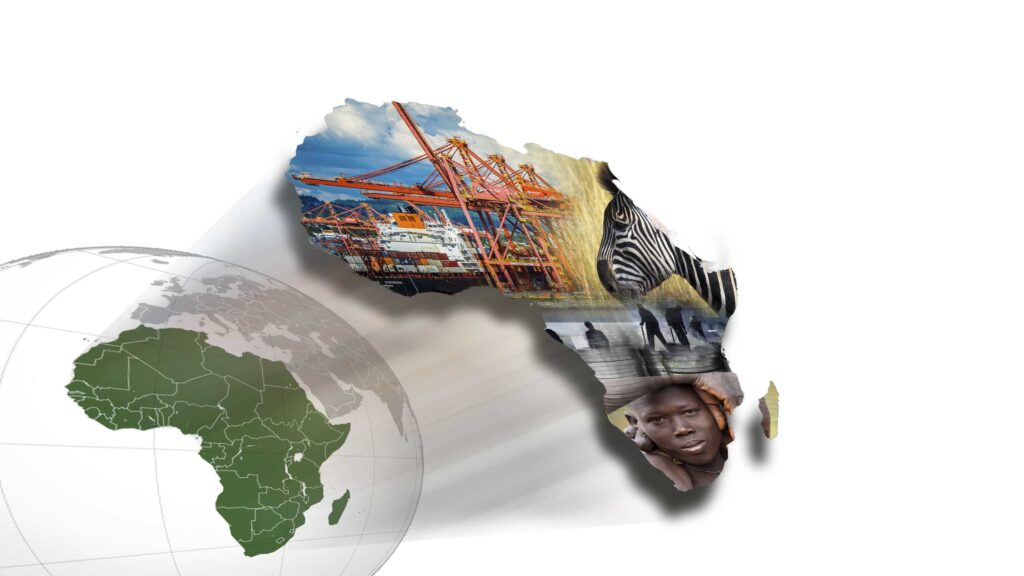The Rise of Shared Housing in 2024: Co-living, Micro-apartments, and the Future of Real Estate

Introduction: In 2024, the concept of shared housing has taken the real estate industry by storm. With the increasing demand for affordable living spaces and the need for flexibility, co-living and micro-apartments have become the go-to options for many. This blog will explore the rise of shared housing in 2024, its various forms, and the future of real estate. Co-living: Co-living spaces have become increasingly popular in 2024, offering a community-driven environment where individuals can share common areas such as kitchens, living rooms, and even outdoor spaces. These spaces cater to a diverse range of individuals, from young professionals to students, and often come with amenities like gyms, pools, and even game rooms. Co-living communities have also embraced technology, with smart home systems that allow residents to control their living spaces through their smartphones. Co-living spaces have become increasingly popular in 2024, offering a community-driven environment where individuals can share common areas such as kitchens, living rooms, and even outdoor spaces. Micro-apartments: Micro-apartments, or “micros,” have also gained traction in 2024, offering a more compact and affordable option for those looking to live independently but with a sense of community. These apartments typically range from 200 to 400 square feet and are designed to be efficient and practical, with built-in storage, compact kitchens, and small balconies or patios. Micro-apartments have also become popular for their eco-friendly design, with many incorporating green roofs, solar panels, and energy-efficient appliances. The Future of Real Estate: As shared housing continues to grow in popularity, the real estate industry is adapting to meet the demands of this new market. This includes the development of purpose-built shared housing communities, as well as the refurbishment of existing properties to cater to the needs of co-living and micro-apartment residents. As technology continues to advance, we can expect to see even more innovative solutions being developed for shared housing, such as virtual reality tours and AI-driven rental management systems. Conclusion: The rise of shared housing in 2024 has revolutionized the way we think about living spaces and the real estate industry. With options like co-living and micro-apartments catering to diverse needs and budgets, it’s clear that the future of real estate is all about flexibility, community, and sustainability. As technology continues to advance, we can expect even more innovative solutions to be developed for shared housing, shaping the way we live for years to come.
The Role of Blockchain in Real Estate: A New Frontier for Investment and Ownership

Introduction: As cryptocurrency continues to gain traction, the potential for its use in the real estate market is an interesting topic to explore. In this blog, we will delve into the world of blockchain and its potential impact on the real estate industry. Blockchain technology allows for decentralized property ownership, meaning that the ownership of a property can be recorded on a digital ledger, making it more transparent and secure. This could lead to increased trust among buyers and sellers, as well as a reduction in transaction costs. Smart contracts are self-executing contracts with the terms of the agreement directly written into code. In the real estate market, smart contracts could be used to automate the process of buying and selling properties, reducing the need for intermediaries and saving time and money. Blockchain’s inherent security features make it difficult to tamper with or hack, providing a secure platform for recording property transactions. This could lead to a reduction in fraud and a more trustworthy environment for buyers and sellers. As the use of cryptocurrency in real estate becomes more prevalent, it’s possible that investors will turn to blockchain-based assets as a way to diversify their portfolios. This could lead to the emergence of new investment opportunities and strategies in the real estate market. Conclusion: The role of blockchain in real estate is an intriguing prospect for the future of the industry. As technology continues to evolve, it’s essential to stay informed about its potential impact on the market and how it may shape the future of real estate investment and ownership.
The Impact of Remote Work on the Housing Market in 2024: Adapting to a New Normal

Introduction: With the rise of remote work and the shift to a more digital economy, the housing market in 2024 will be influenced by the changing needs of workers. In this blog, we will explore how remote work is impacting the housing market and how homeowners and potential buyers can adapt to this new normal. As more people work from home, the demand for flexible housing options, such as coworking spaces and live-work lofts, is expected to grow. This may lead to an increase in the supply of short-term rental properties as landlords cater to the needs of remote workers. With remote work comes an increased emphasis on work-life balance, leading to a focus on amenities such as outdoor spaces, gyms, and entertainment options. This may drive the demand for properties with these features, potentially leading to higher prices for homes with the best amenities. Cities with strong telecommuting infrastructure, such as high-speed internet and access to public transportation, are expected to become more attractive to remote workers. As a result, these cities may experience increased demand for housing, leading to higher prices and rental rates. As more people work from home, there may be a shift towards urban centers with strong telecommuting infrastructure and a vibrant social scene. This could lead to a decline in demand for suburban housing, as remote workers seek out urban living options. Conclusion: In 2024, the impact of remote work on the housing market will be felt across various aspects, from the demand for flexible housing options to the role of urban centers. As the world adapts to this new normal, it’s essential for homeowners and potential buyers to stay informed and adapt to changing market conditions to make the best decisions for their housing needs.
Real Estate Forecast for 2024: A Glimpse into the Future

Introduction: As we approach the end of 2023, it’s time to look ahead and forecast the trends that will shape the real estate market in 2024. In this blog, we will discuss the key factors that will influence the housing market, including economic conditions, demographic shifts, and technological advancements. Let’s dive into the future of real estate together. Conclusion: In 2024, the real estate market is expected to be shaped by a combination of economic stability, demographic shifts, and technological advancements. While there may be challenges, such as rising inflation and the need for balance in sustainability, the future of real estate looks promising for those who stay ahead of the curve. As always, it’s crucial to stay informed and adapt to changing market conditions to make the best decisions for your home-buying journey.
Top 5 Features Young Adults Seek in an Apartment

In the dynamic world of apartment hunting, young people have distinct preferences that guide their choices. Here are five key features that often top the list: Understanding and catering to these preferences can make your apartment more appealing to the dynamic demographic of young renters.
Emerging Trends: Dubai Real Estate in the 21st Century

In the ever-evolving landscape of Dubai’s real estate, the 21st century has brought forth a wave of transformation and innovation. As we stand on the cusp of a new era, let’s delve into the emerging trends that are reshaping the property market in this cosmopolitan hub. 1. Sustainable Living Spaces: Dubai, known for its architectural marvels, is embracing sustainability in real estate. From eco-friendly materials to energy-efficient designs, developers are incorporating green practices, aligning with global efforts for a more sustainable future. Buyers are increasingly drawn to residences that seamlessly blend luxury with eco-conscious living. 2. Smart Homes and Technology Integration: The futuristic allure of Dubai extends to its homes, where smart technology is becoming synonymous with luxury. Home automation systems, security features, and energy management are seamlessly integrated into modern residences, offering residents unprecedented control and convenience at their fingertips. 3. Diversification of Offerings: Dubai’s real estate market is diversifying to cater to a broad spectrum of preferences. Whether it’s opulent villas on the outskirts or chic urban apartments with panoramic views, developers are crafting bespoke offerings to meet the varied tastes of a cosmopolitan population. 4. Co-living and Co-working Spaces: As the way we work and live continues to evolve, Dubai is witnessing a surge in co-living and co-working spaces. These developments foster a sense of community, offering shared amenities like communal workspaces, fitness centers, and social hubs, catering to the modern professional’s desire for connectivity and work-life balance. 5. Emphasis on Wellness Amenities: Dubai’s real estate developers are prioritizing residents’ well-being, integrating wellness amenities into their projects. From dedicated spa and fitness facilities to green spaces promoting relaxation, these developments acknowledge the importance of a holistic lifestyle in the fast-paced city. In conclusion, Dubai’s real estate landscape in the 21st century reflects a harmonious blend of tradition and innovation. As the city continues to push boundaries, these emerging trends not only redefine luxury living but also contribute to the overall allure of Dubai as a global real estate destination. The journey into the future of Dubai’s real estate promises not just homes but an experience that resonates with the spirit of the times.
Exploring the Booming Dubai Real Estate Market: A Haven for Investors

Dubai, the cosmopolitan city known for its stunning skyline, luxurious lifestyle, and vibrant culture, has emerged as a global hub for real estate investment. With its strategic location, favorable economic conditions, and visionary leadership, Dubai’s real estate market has grown exponentially over the past few decades. In this blog, we will delve into the key factors that make Dubai an attractive destination for property investment and explore the current trends shaping the market. Conclusion Dubai’s real estate market has established itself as a global investment destination, offering a combination of economic stability, visionary development projects, tax benefits, and strong rental and investment returns. With the government’s commitment to sustainable growth and continuous development, the market is expected to remain robust in the future. Whether you are a seasoned investor or a first-time buyer, Dubai presents a wealth of opportunities in the real estate sector, making it a haven for investors seeking long-term growth and profitability.
The Future of Proptech in Africa: Predictions and Trends

In recent years, Africa has shown great potential for growth in various sectors, including real estate. As the continent experiences socio-economic and demographic advancements, it becomes essential for real estate companies and investors to find innovative and sustainable ways to meet the increasing market demands. One significant component that will shape the future of the real estate industry in Africa is Proptech (Property Technology). Proptech refers to using technology to facilitate research, buying, selling, and management of real estate or properties. Key Predictions and Future Trends in Proptech in Ghana and Nigeria: Africa’s potential for socio-economic and demographic growth positions it as a promising market for the real estate industry. Proptech is expected to play a vital role in shaping the industry’s future in Africa, particularly in countries like Ghana and Nigeria. By embracing smart buildings, implementing property financing solutions, and adopting property blockchain systems, the African real estate market can thrive and attract increased interest from venture capitalists seeking to leverage its growth potential.
Successful Negotiations in Real Estate: Essential Strategies and Skills

Negotiations are a crucial part of the real estate industry. As a real estate professional, it’s essential to have the skills and strategies needed to negotiate successfully. Here are some essential strategies and skills that you need to have to be a successful negotiator in the real estate industry. Before entering into any negotiation, it’s important to do your research. Find out everything about the property you are negotiating for, the market, and the other party. This will give you a better understanding of the situation and enable you to negotiate from a position of strength. During negotiations, it’s essential to listen carefully to the other party. You can identify their wants, needs, and interests by doing this. Once you know what they want, you can use that information to your advantage and make a mutually beneficial deal. Communication is vital in any negotiation. Learn how to communicate your needs and interests clearly and concisely. This will help prevent misunderstandings and ensure everyone is on the same page. Don’t be afraid to be creative during negotiations. Look for alternative solutions that are outside the box but still meet the needs of both parties. This can lead to a win-win situation and a successful negotiation. Negotiations can take time, and patience is essential throughout the process. Rushing to make a deal could result in regrets down the line. Consider negotiating carefully and thoughtfully to ensure a successful outcome for everyone involved. In conclusion, successful negotiations in the real estate industry require careful research, active listening, effective communication, creativity, and patience. By mastering these skills and strategies, you can become a successful negotiator and achieve your real estate goals.
The Digital Transformation of Real Estate – PropTech

The real estate industry can no longer deny the impact of technology on its future, and PropTech is leading the way in a sustainable direction. PropTech refers to integrating innovative technology in the real estate industry to optimize operations, enhance tenant experience, and drive greener business practices. These technological shifts have gained significant momentum recently, allowing real estate operators to reduce their carbon footprint while cutting unnecessary expenses. Integrated tools such as IoT sensors, cloud storage, and AI have revolutionized how the sector approaches energy and resource management. IoT sensors monitor building systems, lighting, and heating to optimize energy use while reducing waste. Cloud-based storage systems support green business practices by replacing paper-based workflows with digital files accessible from anywhere with an internet connection. AI systems can reduce energy consumption, provide actionable data insights, and automate building systems to ensure energy- and cost-efficiency. Despite the clear advantages of these technologies, digital transformation has needed to catch on in the real estate industry. Many companies are reluctant to modernize existing systems and processes, partly because of fear, and other reasons include the assumed cost and infrastructure changes for implementation. Those companies, however, that have leveraged PropTech and adapted to these technologies stand to benefit financially and environmentally. It’s simply a win-win situation. Sustainable investment in digital integration reduces costs and attracts tenants who value sustainable workplace practices. The real estate industry is at a critical juncture to be environmentally responsible and stay relevant and competitive. Twenty-first-century companies must embrace digital transformation actively, with sustained investment in PropTech solutions, that will ultimately lead to a more sustainable future for the industry. Success and Benefits of PropTech for the Environment and Business PropTech has revolutionized the real estate industry by providing a more sustained approach to how corporations design and operate their buildings. Digital integration in the form of IoT sensors, cloud storage, and artificial intelligence (AI) has been instrumental in generating CO2 and expenditure savings while reducing consumption across the built environment. Sustainable investment in digital integration provides financial savings and attracts potential tenants who recognize the importance of implementing sustainable practices. Furthermore, PropTech has revolutionized how corporations view their carbon footprint and reduce their energy costs. The success of PropTech in sustainable practices has been proven, and many corporations have already seen the benefits of adopting it. Therefore, the future of sustainability in the real estate industry will continue to emphasize the role of PropTech in creating more sustainable practices. Conclusion In conclusion, incorporating PropTech technology has improved cost-effectiveness and significantly transformed the real estate industry toward a more sustainable future. The Real Estate industry is transforming through sustainable investment and PropTech. With digital integration, there are cost-saving opportunities, reduced energy consumption, and attraction of potential tenants. The proven success of these technologies is enhancing sustainability in the built environment, making it more efficient than ever before.


